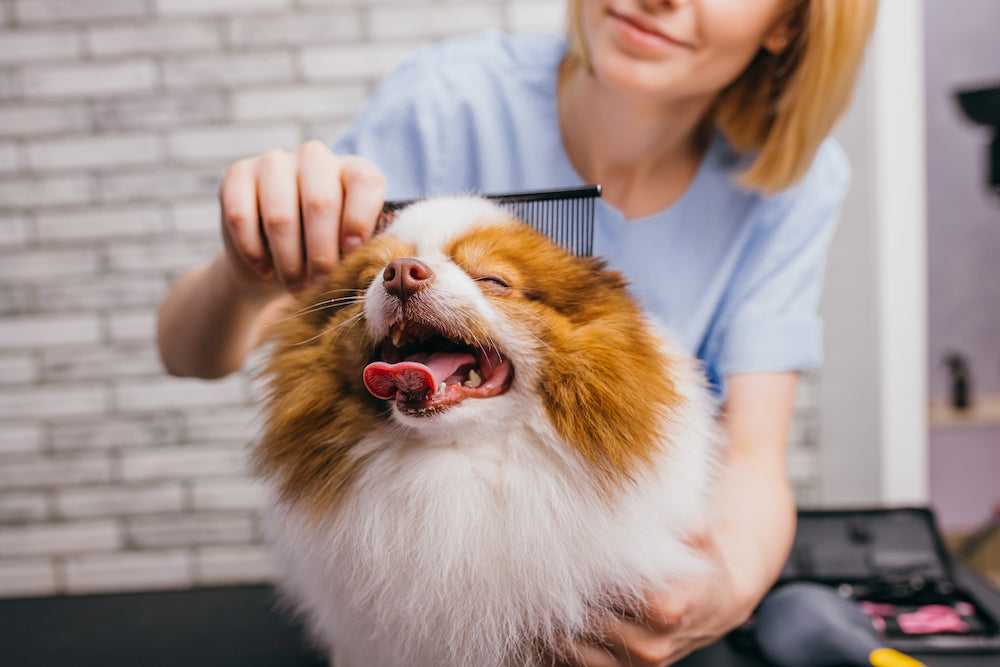In the realm of pet care, few topics are as critical and widely discussed as pet nutrition. As devoted pet owners, we understand the profound impact diet has on the health, happiness, and longevity of our beloved furry friends. However, navigating the vast landscape of pet nutrition can be overwhelming, with an abundance of conflicting information and opinions. That's why we've crafted this comprehensive guide to help you understand the essentials of pet nutrition, empowering you to make informed decisions for your pet's well-being.
Why is Pet Nutrition Important?
Just as proper nutrition is crucial for human health, it's equally essential for our pets. A well-balanced diet provides the foundation for optimal growth, development, and overall vitality. Beyond mere sustenance, nutrition plays a pivotal role in supporting immune function, maintaining healthy organs, promoting strong bones and muscles, and even influencing behavioral patterns. In essence, the food we provide our pets serves as the building blocks for their entire existence.
Understanding Pet Dietary Needs
Before delving into specific dietary recommendations, it's essential to grasp the basic nutritional requirements of different pets. Dogs and cats, as the most common household pets, have distinct dietary needs.
Dogs:
- Dogs are omnivores, meaning they can derive nutrients from both plant and animal sources.
- They require a balanced diet consisting of protein, carbohydrates, fats, vitamins, and minerals.
- Protein is particularly crucial for dogs, as it supports muscle growth and repair.
Cats:
- Cats are obligate carnivores, meaning they require meat to meet their nutritional needs.
- Their diet should be high in animal-based protein and fat, with minimal carbohydrates.
- Taurine, an amino acid found exclusively in animal tissue, is essential for feline health.
Key Components of a Healthy Pet Diet
-
Protein: Whether you have a dog or a cat, protein is a non-negotiable component of their diet. Look for high-quality protein sources such as chicken, turkey, beef, fish, or lamb. Aim for a diet where protein constitutes a significant portion of the total caloric intake.
-
Fats: Healthy fats are essential for energy, nutrient absorption, and maintaining healthy skin and coat. Opt for sources of omega-3 and omega-6 fatty acids, such as fish oil, flaxseed oil, and chicken fat.
-
Carbohydrates: While dogs can tolerate a moderate amount of carbohydrates, cats have limited ability to metabolize them efficiently. Choose complex carbohydrates like sweet potatoes, peas, and whole grains for dogs, but keep them to a minimum for cats.
-
Vitamins and Minerals: Ensure your pet's diet is fortified with essential vitamins and minerals, including vitamin A, vitamin D, calcium, and phosphorus. These nutrients are vital for bone health, immune function, and overall well-being.
Common Dietary Pitfalls to Avoid
-
Overfeeding: Obesity is a prevalent issue among pets and can lead to a myriad of health problems, including diabetes, arthritis, and cardiovascular disease. Practice portion control and monitor your pet's weight regularly.
-
Poor Quality Ingredients: Not all pet foods are created equal. Avoid products containing fillers, by-products, artificial preservatives, and excessive amounts of grains or carbohydrates. Opt for premium-quality pet foods made from wholesome ingredients.
-
Inadequate Hydration: Proper hydration is just as crucial as diet when it comes to pet health. Ensure your pet has access to fresh, clean water at all times, especially if they consume dry kibble.
-
Ignoring Individual Needs: Every pet is unique, with their own dietary requirements and preferences. Consider factors such as age, breed, activity level, and any underlying health conditions when selecting a diet for your pet.
Choosing the Right Pet Food
With countless options lining the shelves of pet stores, selecting the right food for your pet can feel like a daunting task. Here are some tips to help you make an informed decision:
-
Read the Label: Take the time to carefully examine the ingredients list and nutritional information on pet food packaging. Look for recognizable, high-quality ingredients listed near the top of the list.
-
Consider Nutritional Adequacy: Ensure the pet food you choose meets the nutritional standards set by organizations such as the Association of American Feed Control Officials (AAFCO).
-
Consult Your Veterinarian: Your veterinarian is an invaluable resource when it comes to pet nutrition. They can offer personalized recommendations based on your pet's specific needs and health status.
-
Monitor for Allergies or Sensitivities: Keep an eye out for any signs of food allergies or sensitivities in your pet, such as itching, gastrointestinal upset, or dull coat. If you suspect an issue, consult your veterinarian for guidance.
Supplementing Your Pet's Diet
In certain cases, supplementation may be necessary to address specific nutritional deficiencies or health concerns. However, it's essential to approach supplementation with caution and consult your veterinarian before introducing any new products. Some common supplements for pets include:
-
Omega-3 Fatty Acids: Fish oil supplements can help support skin and coat health, reduce inflammation, and improve joint function in pets with arthritis or other inflammatory conditions.
-
Probiotics: Probiotic supplements can promote digestive health and support a robust immune system by replenishing beneficial gut bacteria.
-
Joint Supplements: Glucosamine and chondroitin supplements are commonly used to support joint health and mobility, particularly in senior pets or those with arthritis.
-
Multivitamins: While a balanced diet should ideally provide all the essential vitamins and minerals your pet needs, multivitamin supplements can help fill in any nutritional gaps.
The Role of Treats in Your Pet's Diet
Treats can be a fun and rewarding part of your pet's daily routine, but it's essential to use them in moderation and choose wisely. Opt for treats made from high-quality ingredients and avoid those that are high in fat, sugar, or artificial additives. You can also use fruits and vegetables as healthy, low-calorie alternatives to traditional pet treats.
Conclusion
In summary, pet nutrition is a cornerstone of responsible pet ownership, with far-reaching implications for your pet's health and well-being. By understanding your pet's unique dietary needs, choosing high-quality pet foods, and providing appropriate supplementation when necessary, you can help ensure a long, happy, and healthy life for your furry companion. Remember, when it comes to pet nutrition, knowledge is power, so continue to educate yourself and consult with your veterinarian to make the best choices for your pet's health.
With this guide, you're now equipped with the knowledge and resources to provide your pet with the nutrition they need to thrive. Here's to many years of happiness and good health with your beloved furry friend!





